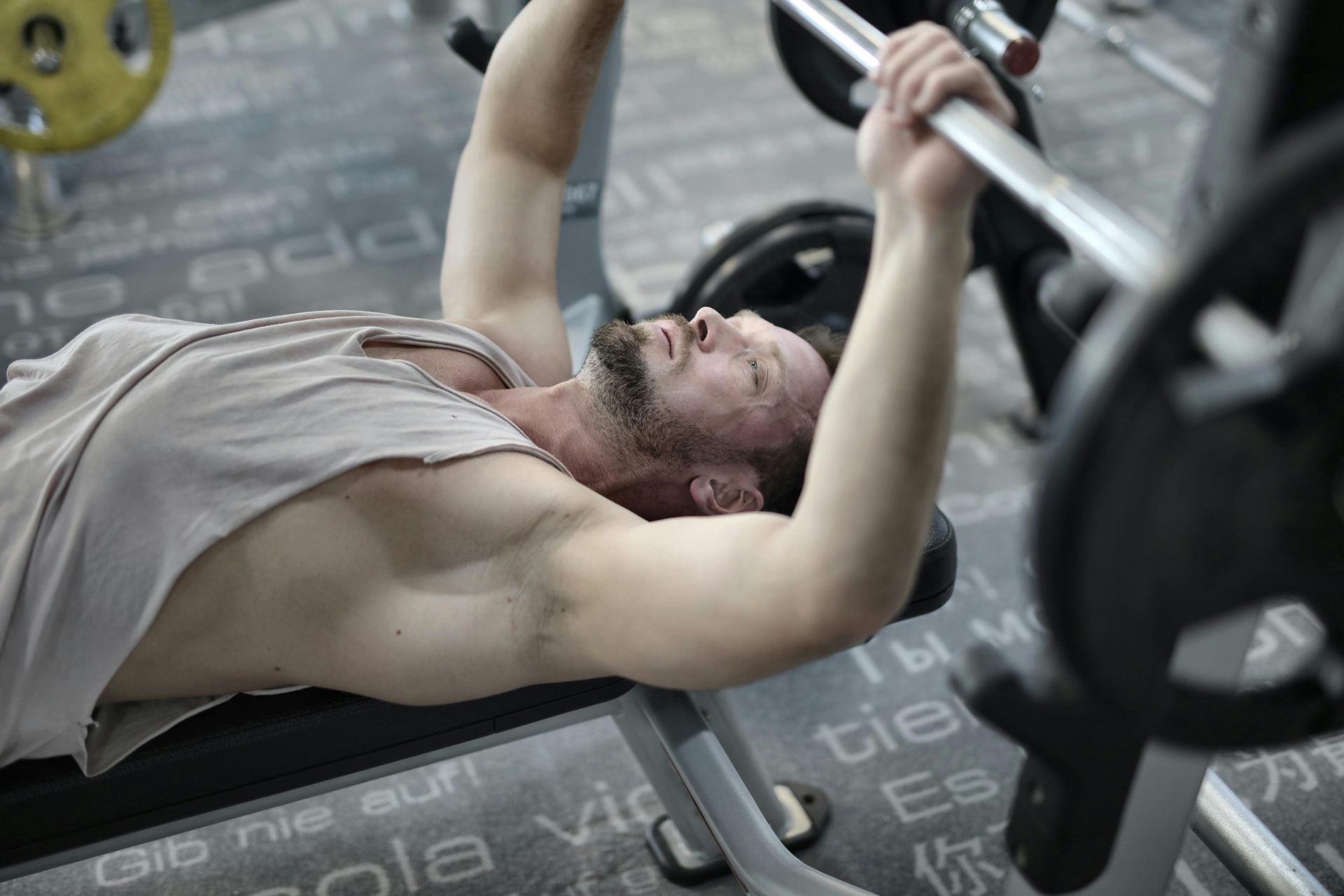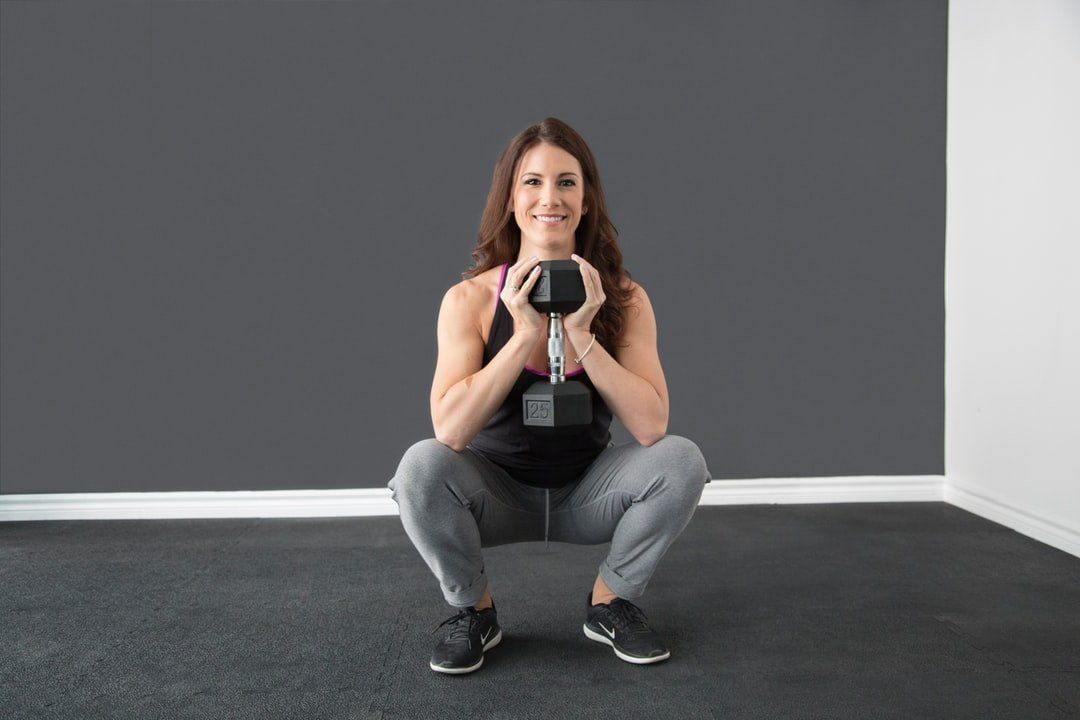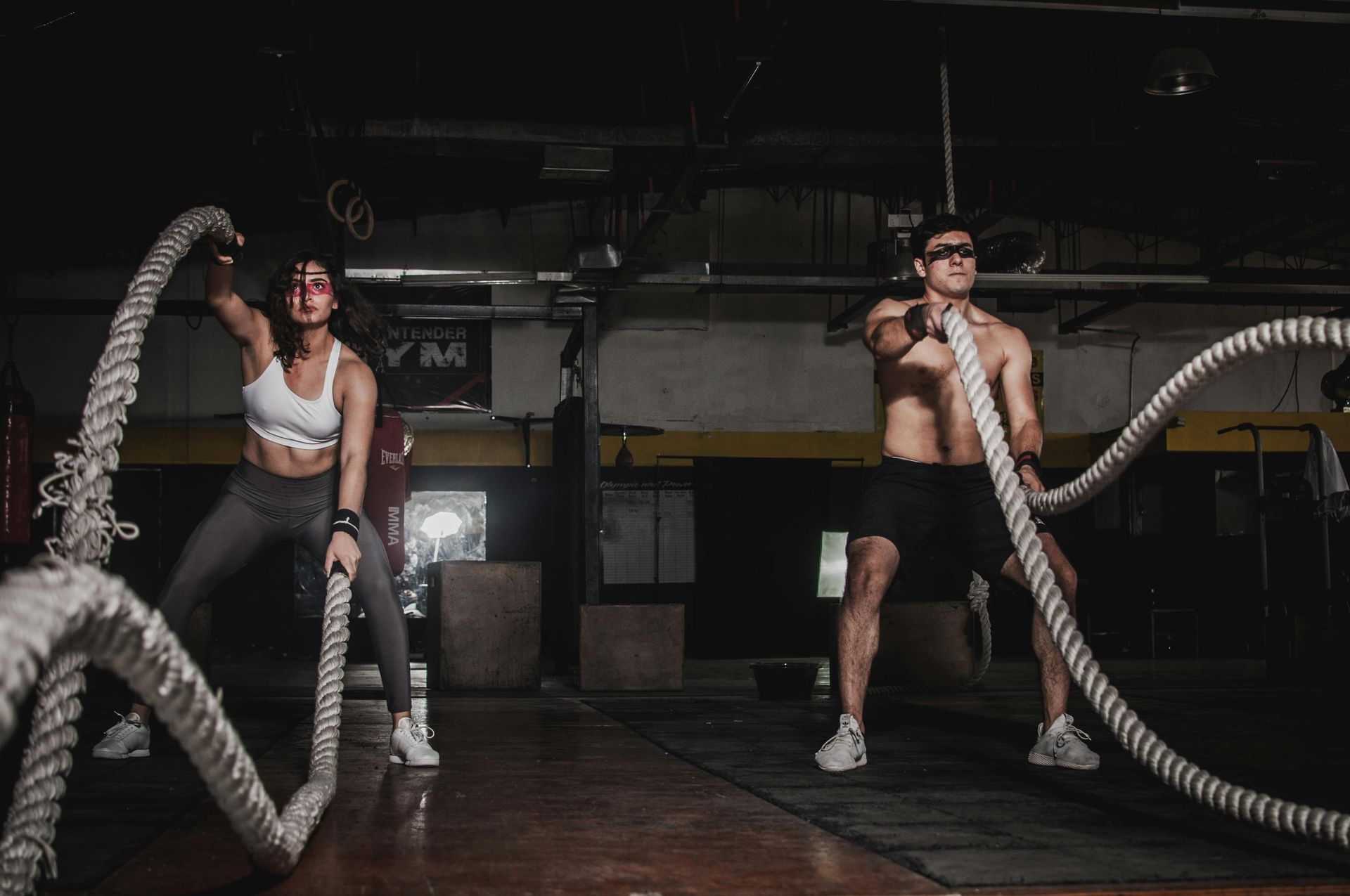Why Women Should Take Creatine
Summarizing the benefits and dispelling the myths

Creatine, or creatine monohydrate more specifically, is perhaps the most studied supplement out there. According to scientific research, creatine has been consistently shown to be both safe and effective for enhancing one's performance in the gym and on the field, specifically in terms of enhancing one's ability to generate force at rapid rates for longer durations than is typically associated with non-creatine supplementation. Some research even indicates it can decrease muscle recovery time between workouts. This boost in power, performance, and recoverability may also indirectly enhance muscle growth.
Research also indicates that creatine may enhance cognition, decrease depression-related symptoms, and provide neuroprotective effects. Why might it have these benefits? Creatine is essentially an organic compound that plays a critical role in producing energy for cells (especially muscle cells and brain cells) in the form of adenosine triphosphate (ATP). Theoretically, supplementing with creatine helps cells replenish ATP stores more quickly, which has implications for the force-producing capabilities of muscles and the metabolic functioning of brain cells. Therefore, even those who are not serious lifters can benefit from creatine supplementation.
One population I want to focus on for the purposes of this blog post is women. While strength training is becoming more popular among women, there still appears to be a significant degree of skepticism of supplements such as creatine. Unfortunately, misinformation is fairly ubiquitous in fitness and nutrition discourse. I will make the case for its benefits as well as dispel some of the myths surrounding it.
Key Benefits
Peer-reviewed scientific literature suggests that creatine supplementation can offer several benefits for women. Here is a summary of the key findings:
Increased Strength and Power: Creatine supplementation, combined with resistance training, can help women increase their muscle strength and power. This is especially important because this can reduce the risks associated with sarcopenia (age-related loss of muscle mass and strength). Sarcopenia poses significant risks to both men and women, impacting their overall health, independence, and quality of life. While the condition affects both groups, some differences exist in its prevalence and progression. The general risks for both men and women include decreased strength and function, increased risk of falls and fractures, reduced mobility and independence, impaired quality of life, increased risk of chronic disease, and higher mortality risks. The risks that are generally more specific to women include increased risk of developing osteoporosis which isn't causally linked with sarcopenia but the two conditions are co-morbidities that have overlapping risk factors. For instance, resistance training both promotes muscle mass and bone mineralization. Thus, a lack of resistance exercise, or weight-bearing activities, can lead to the development of sarcopenia and/or a decrease in bone mineral density.
Improved Exercise Performance: Creatine may enhance performance in high-intensity, short-duration exercises, allowing women to perform more repetitions or sets.
Muscle Health: Creatine can promote muscle growth in women, especially when combined with resistance training. This can lead to improved body composition and modest increases in metabolism. It may also help reduce muscle damage and inflammation after exercise, potentially leading to faster recovery.
Bone Health: Some studies indicate that creatine supplementation, combined with resistance training, may have positive effects on bone health in postmenopausal women. It has also been shown that resistance training in itself enhances bone mineral density, so it stands to reason that increased resistance training performance helps enhance bone mineral density, which helps prevent osteopenia and osteoporosis.
Mental Health: Preliminary research suggests that creatine may have a positive impact on mood and overall mental health in women.
Concerns About Creatine
While creatine stands to benefit women, many still hesitate to take it as a supplement for a number of reasons, including concerns about “bulking up”, water retention, lack of awareness and understanding, misinformation and misconceptions, and limited research on women. I will address each of these valid concerns in turn.
Fear of “Bulking Up”: One primary reason for women hesitating to take creatine is the fear of developing a “bulky”, masculine physique. This stems from the misconception that creatine will lead to excessive muscle growth. This is somewhat unfounded due to the fact that while women have the same potential for relative muscle growth as men, they generally start out with less muscle mass and are less likely to attain said “masculine” physiques without intentional training and nutrition aimed at developing such a physique.
Additionally, I want to push back against the idea that femininity implies having smaller, weaker muscles. While many people have traditionally associated femininity with being frailer and weaker than masculinity, there is no necessary relation between femininity and those traits. We as women have the power to redefine femininity so as to be associated with strength, power, and taking up space.
Water Retention: Some women are concerned about water retention associated with creatine supplementation, which can lead to a slight increase in body weight. This concern is often linked to the desire to maintain a lean physique and avoid perceived bloating. The scientific evidence is actually mixed on this question. At the most, it generally suggests that while some initial water retention may occur, especially during loading phases, it is not a long-term concern and is primarily related to increased water in muscle fibers, which may subside over time. Since an initial loading phase is unnecessary, initial water retention can be mitigated by skipping it altogether, and whatever water retention does occur can actually contribute to the appearance of a more lean physique due to the modest increases in muscle mass.
I want to push back again against the idea that femininity implies having smaller, weaker muscles and smaller, lighter bodies. Despite more mainstream and long-held beliefs about femininity (which actually vary quite a bit by time and place), we can define femininity in ways that better serve us, rather than affirm and reproduce beliefs and values that keep us small and prone to the development of frailty, disease, and poor mental health.
Lack of Awareness and Understanding: The fitness industry and social media platforms often perpetuate misinformation and misconceptions about creatine, leading to confusion and hesitation among women. Some of these misconceptions include concerns about kidney damage, hair loss, and other unfounded side effects. Eric Trexler, PhD, writing for Stronger by Science, summarized the literature on Creatine supplementation including the research related to the idea that creatine causes hair loss because it may increase dihydrotestosterone (DHT) levels. He concludes, “There is no reason to believe that creatine would cause hair loss in individuals who are not genetically predisposed to hair loss.” He further concludes that while the literature suggests a link between DHT and hair loss might exist, “there is not sufficient evidence to suggest DHT accelerates hair loss in genetically predisposed individuals”.
Limited Research on Women: Historically, most research on creatine supplementation has focused on men, leading to a lack of specific guidelines and recommendations for women. This lack of information can contribute to uncertainty and hesitation among women considering creatine. This is a very understandable and valid critique. However, more recent literature is suggesting creatine supplementation is beneficial for women like it is for men.
Recommendations for Creatine Supplementation
While some gym bros might tell you that you need to start with a loading phase, recent research indicates that a loading phase is not essential for everyone. As Trexler argues, studies have shown that consistent daily intake of a maintenance dose of creatine (3-5 grams per day) can also effectively saturate muscle creatine stores over time, although it may take longer (3-4 weeks) compared to a loading phase (4-7 days). Further, gastrointestinal discomfort has been observed during loading phases. Therefore, a loading phase is unlikely to be all that necessary for most and a consistent dose of 3-5 grams per day should suffice with most women getting all the benefits available at 3 grams per day.
Another consideration is its interaction effects with caffeine. Some assert that research suggests that caffeine consumption may blunt the effects of creatine, though the results of the literature may or may not be generalizable to typical caffeine consumption, thus lacking what is called ecological validity. It is also not clear why this would be the case in the first place. Other research indicates that the combination of the two may create gastrointestinal discomfort, and this interaction effect appears to be more clearly demonstrated by the research. In either case, one strategy that I use to avoid any potential interaction effects (though I am primarily concerned about gastrointestinal discomfort) is to have caffeine in the morning (also because
caffeine consumption can interfere with
sleep up to 13.2 hours following its consumption) and creatine monohydrate right before going to bed since while there may be some
preliminary evidence suggesting timing may have an effect, my goals don't call for getting whatever marginal gains I might derive from a different schedule. The most important thing for me is that I consume it consistently. Therefore, there is not enough evidence to suggest that it's more ideal for me to consume creatine at any point during the day other than what is needed to avoid interaction effects. I also take 5 grams per day as opposed to 3 grams because (1), I have an above average lean body mass, and (2) I am a pescatarian who doesn't consistently consume fish, so I do not get as much creatine from whole foods in my diet as those who consume animal meats like chicken, pork, or beef in addition to seafood.
Key Takeaways
I have provided what I hope is a helpful and informative guide to creatine supplementation for women. Here are the key takeaways:
Creatine is safe and effective: Creatine monohydrate is a well-researched supplement shown to enhance performance, power, and recovery, likely due to its role in ATP production. It may also have cognitive and mental health benefits.
Benefits for women are significant: Creatine can improve strength, power, exercise capacity, muscle health (growth and recovery), and potentially bone health in women. It can also help mitigate the risks of sarcopenia, which disproportionately affects women in some ways.
Concerns are often unfounded: Common concerns about creatine, such as bulking up, water retention, and hair loss, are largely myths. Women are less likely to experience significant muscle hypertrophy due to lower testosterone levels. Water retention is often temporary and intracellular, potentially contributing to a leaner appearance. Hair loss is not supported by current research. While earlier studies focused on men, newer research confirms creatine's benefits for women.
A loading phase is not necessary: A consistent daily dose of 3-5 grams is sufficient for most women, eliminating the need for a loading phase and potentially reducing gastrointestinal discomfort.
Caffeine interaction is possible: While the impact of caffeine on creatine's effects is unclear, combining them may cause gastrointestinal issues. Separating their consumption (e.g., caffeine in the morning, creatine at night) can minimize this risk.
An individualized approach is best: Dosage and timing can be adjusted based on individual needs, body composition, dietary habits (e.g., vegetarian status), and sensitivity to potential side effects. Consulting with a healthcare professional or registered dietitian is always recommended.
Redefining femininity: I challenge the traditional association of femininity with weakness and frailty, advocating for a redefinition that embraces strength and power. This serves as an encouragement for women to embrace strength training and consider creatine supplementation without fear of compromising their femininity.











